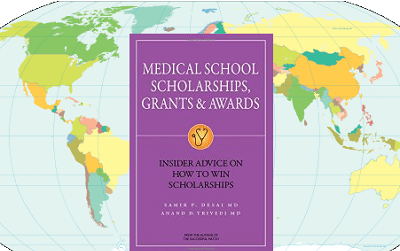Life working in a U.S. clinic is worlds away from global health work in Africa, South America, and other impoverished regions. Through organizations such as Medicine Sans Frontiers (Doctors Without Borders), the Peace Corps, and a variety of other global health programs, physicians and medical staff work to better the lives of the world’s poorest communities.
For MDs or medical students exploring global health programs, there are a variety of adjustments that must be made.
“Every work setting has its unique features and requires adjusting to a new system and some different approaches,” notes Dr. Lisa V. Adams, whose Africa: A Practical Guide for Global Health Workers provides personal and professional lessons gleaned from years of international health work. “These differences are just magnified when working at a site in a low-income country – and the resource differential is, of course, the most immediate and often most striking difference.”
For places like Africa, the day-to-day differences from U.S. clinical work can be jarring.
“We often find how many things we take for granted in our U.S. workplace – uninterrupted electricity, access to hand washing facilities, and enough bandwidth to download a small file – these are a few examples that come to mind. Often physicians have prepared themselves and reset their expectations regarding access to medical diagnostics and technology – they fully expect that the lab won’t have reagents to run all the tests they might want to order and understand that it may take longer to obtain a chest X-ray because only one machine is functioning and there is a long queue of priority patients and know that they won’t have access to the full armamentarium of antibiotics.”
Similarities Are Striking
For Dr. Adams, who is an Assistant Professor of Medicine and Assistant Professor of Community and Family Medicine, the similarities are more striking than the differences.
“Everywhere I work, I meet physicians who are committed to practicing medicine to the best of their ability, who are constantly seeking ways to increase their knowledge and skills. I see nurses spend the time necessary to make certain a patient understands the importance of taking their full course of medicines. I see the familiar turf battles between specialties and a gradual dismantling of the old hierarchy dividing doctors and nurses. I see families struggle to comprehend and maneuver in a complicated health care system, and I see them make sometimes painfully difficult choices because healthcare costs present a significant financial burden to so many people no matter where you live.
“In my work,” she adds, “I try to focus on that which unites us rather than divides us and am always reminded just how deep the similarities run.”
And while global health programs can mean the difference between life and death for so many vulnerable communities, it can mean a lifetime of satisfaction and sustaining work for the physicians and health care staff involved.
“This work certainly is rewarding on many levels, and in large part due to the privilege of working with so many phenomenal international partners,” Dr. Adams says. “I feel so fortunate to have colleagues and friends from all over the world and am constantly reminded of our common humanity. I also find the patients we work with to be truly inspiring. So many people in this world face innumerable challenges just as they try to conduct their daily lives.
“On every trip to our sites in Tanzania, I am humbled by the strength of our patients and their families, and I return with a deeper commitment to the struggle for health equity and social justice.”
Series on International Health Programs
Next Peace Corps For many volunteers, Peace Corps offers a glimpse into global health care issues.
Peace Corps and Medical School A fourth-year medical student shares how her Peace Corps service defined her medical school experience.
Is Peace Corps Right for You? A Peace Corps specialist talks about skills, service, and volunteers interested in global health care.
Doctors Without Borders/Médecins Sans Frontières (MSF) Doctors Without Borders (MSF) attracts both new MDs right out of residency, as well as mid-career and veteran physicians.
International Health Work What draws physicians to pursue international health work and global health care programs.
Back Why a Career in Global Health? A professor and author advises med students to follow their passion, and there will be a way to engage in global health work.




